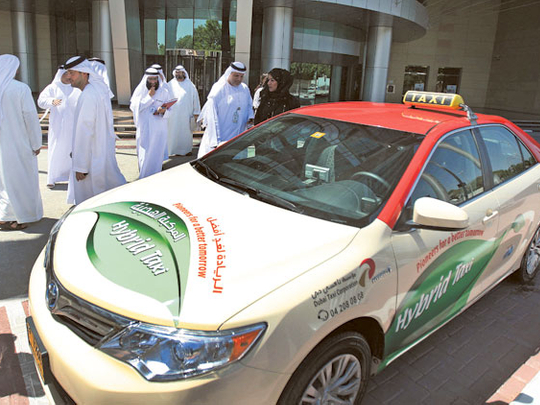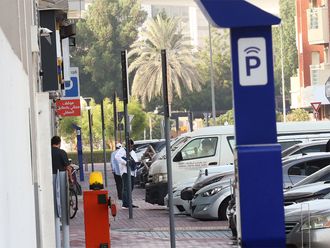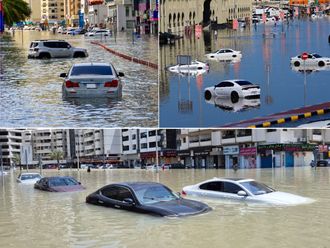
Dubai: Hybrid cars, powered by petrol and electricity, will be part of Dubai Taxi’s fleet as the Roads and Transport Authority (RTA) drives ahead with its green transport solutions.
RTA has rolled out 20 vehicles, all Toyota Camry, that will consume 33 per cent less fuel and will also reduce carbon emissions by 33 per cent when compared to conventional vehicles.
“RTA is making unremitting efforts to bring about a shift in the infrastructure systems of mass transit so that they are environmentally friendly and meet the increasing demand for transportation in the emirate. The launch of hybrid vehicles is one of the several steps RTA is taking to support Dubai Government’s efforts for a greener and cleaner emirate,” said Ahmad Mohammad Al Hammadi, Acting CEO of Dubai Taxi Corporation (DTC), as he announced the launch of Hybrid Taxi.
The project is carried out under a partnership with Al Futtaim Motors, who are providing the vehicles and taking care of the maintenance and monitoring of the vehicles.
The launch comes following a pilot phase of hybrid taxis that took place between 2008 and 2011, involving 10 vehicles.
“Results of the pilot project have shown that the vehicles have been driven for more than 550,000 kilometres without breakdowns or major maintenance of the main parts in the vehicle. It also showed that the vehicles are safe and efficient,” added Al Hammadi.
He pointed out that the vehicles will have all the same features that a normal taxi has and would differ only in the way it is fuelled.
“It’s the same Toyota Camry that you see on the road, the only difference is that the hybrid vehicles are powered by petrol and electricity. Apart from this there is no difference. People won’t even realise whether at a given moment the vehicle is being powered by petrol or electricity,” explained Al Hammadi.
The vehicle seamlessly moves from electric power to petrol once it exceeds the speed of 70 km/h.
Interestingly, the hybrid taxis won’t require any plug in to recharge their electric batteries; they have auto-charging mechanisms.
“These vehicles are very smart and efficient. As the car moves the batteries constantly charge themselves. They don’t require any plug in. Additionally, the vehicle’s braking system also helps charge the batteries,” said Yousuf Al Raisi, general manager of government relations and environmental affairs at Al Futtaim Motors.
Though more hybrid taxis are likely to join the fleet in the future, Al Hammadi insisted: “The plan is now to study the performance of the current fleet and, based on the results, we will send a recommendation to the board and, hopefully, we will gradually add more hybrid vehicles to the fleet.”
RTA and Al Futtaim Motors are also jointly planning to promote a hybrid vehicle for people, which is likely to be available for sale soon in the UAE.
In the spirit of giving,, DTC and Al Futtaim Motors distributed the financial returns from the pilot project to three charity organisations: Takaful Drivers Fund, Dubai Autism Centre and General Department of Punitive and Correctional Institutions at Dubai Police.











